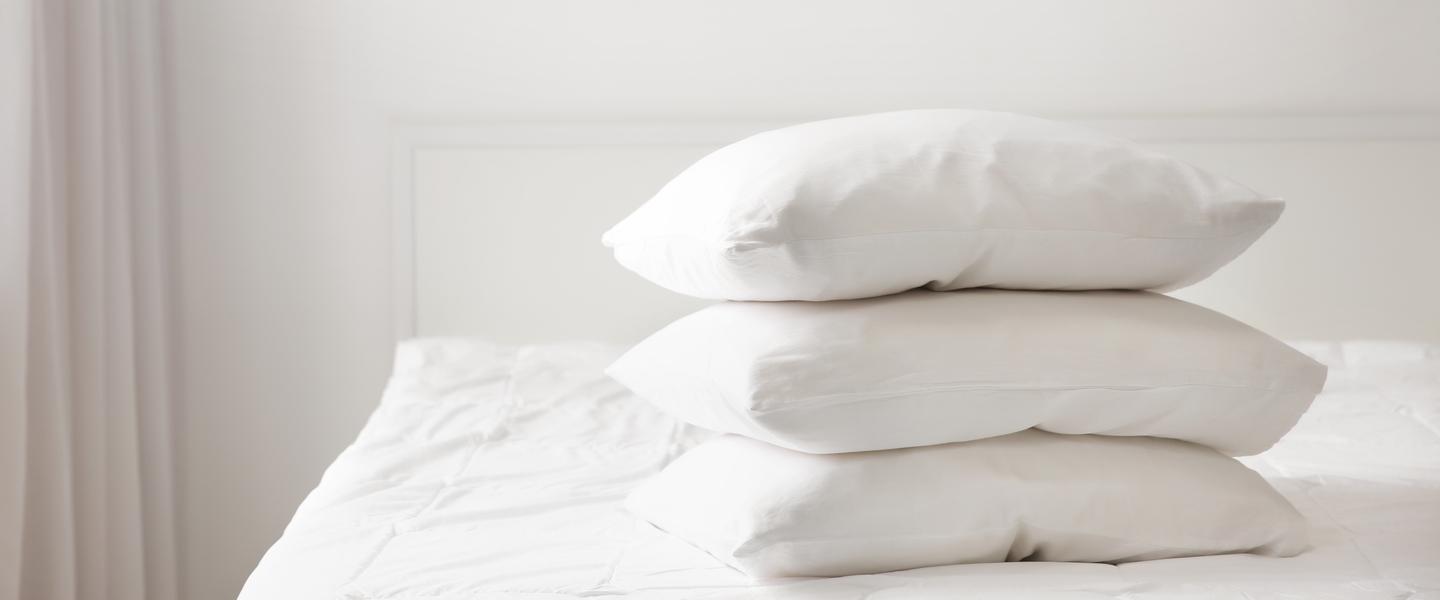Is it Better To Sleep Without a Pillow?
Nothing conjures up images of a good night's sleep better than a comfy pillow. These soft cushions help ensure your head, neck, and spine stay in proper alignment while you're catching some sleep.
It may surprise you that some people claim to get their best sleep without the aid of a pillow, believing that pillows cause problems like neck stiffness and skin wrinkles.
Before you decide to get rid of all your pillows, keep in mind that individual needs vary. People have different sleep postures, and your sleep habits also play a crucial role in determining whether pillowless sleep will work for you.
In this guide, we'll help you understand the positives and negatives of sleeping with a pillow and discuss different sleeping postures to help you make the best decision.
What is the point of a pillow?
Pillows provide you with many benefits extending beyond comfort. Poor pillow support can cause pain in important structures throughout your body, such as the head, neck, shoulders, hips, and spine. If you're using your pillows properly, they will reduce or prevent pain in these areas as well as your joints.
Pillows keep your upper body in proper alignment while you're sleeping. The human spine naturally curves, so pillows provide a point of counterbalance. As a result, your body experiences less pressure during sleep. You should wake up with less stiffness in your neck and back after using a pillow that suits your needs.
Potential benefits of sleeping without a pillow
There are many benefits to sleeping with or without a pillow, but this is primarily down to your preference. For example, stomach sleepers might benefit from sleeping without a pillow as this position forces their neck into a lower angle. The flat surface of the bed lends itself to better spinal alignment, reducing neck and back pain.
If you're a back sleeper but find pillows tend to tilt your head uncomfortably high up, ditching your pillow may provide you with some pain relief. There is also the possibility that you're using the wrong pillows for your sleeping style. You can choose between soft pillows, medium pillows and firm pillows, with each offering different levels of support.
Effects on posture
It's essential to identify your preferred sleep position to know how a pillow will affect your posture. If you sleep on your back, you're typically putting less pressure on your neck. A small gap likely remains between your neck and mattress. A medium support pillow is the best pillow for back sleepers as it should provide the correct elevation level.
If you sleep on your side, you're leaving a large gap between your head and the pillow. The best pillow for side sleepers is a firm support pillow that should keep your head, neck, and spine in proper alignment.
If you're a stomach sleeper, you need to turn your neck to one side for proper breathing. Sleeping in this position places considerable stress on your neck. Choosing a softer pillow is a better option. This is the best pillow for front sleepers as it keeps your neck and spine at a better angle.
Effects on back and neck pain
During sleep, you tend to remain in the same position for prolonged periods. The lack of movement places stress on your back and neck muscles. Pillows help stabilise your head and minimise biomechanical stresses on your body while you sleep.
Proper pillow usage should alleviate the various forms of stiffness you may experience upon waking.
Potential drawbacks of sleeping without a pillow
Unless you're a stomach sleeper, chances are your pillow helps you find your optimal sleep posture. A suboptimal sleep posture can lead to poor sleep quality and bodily pain. Pillows also provide additional support to individuals with certain medical conditions like heartburn or obstructive sleep apnea.
If you have any health problems that impair your sleep quality, it's best to consult with your doctor before you decide to go pillowless.
Negative effects on posture
Most people will find their sleep posture suffers in the absence of a quality pillow. Back sleepers end up lying on a horizontal surface. With no pillow to catch your neck, it will likely fall into a backward angle, causing unnecessary pressure.
Side sleepers face a similar problem when it comes to neck alignment. Because you're almost certain to move your neck off-centre, it won't synchronise with your spine's position.
It is a more challenging decision if you sleep on your stomach. Depending on how much support your mattress offers, it might be worth investing in a thin pillow to keep your head, neck, and spine level. Alternatively, you could invest in a new mattress topper to improve the support your mattress provides if you don't want to use a pillow.
Negative effects on back and neck pain
Sleeping without the support of a pillow makes it almost impossible for back and side sleepers to avoid overextending their necks. You'll be much more likely to wake up with prolonged stiffness or soreness in your neck in these cases. Other health problems like tension headaches are also possible.
Stomach sleepers aren't in the clear either. You're forced to turn your head to one side with or without a pillow, which often leads to muscle stiffness. Finding a pillow with the proper firmness can help you wake up every morning feeling well-rested and pain-free.
Should side sleepers sleep without a pillow?
Side sleepers risk creating a gap between their neck and shoulders if they don't use a pillow. Sleeping in this position causes curvature of the spine. Prolonged spinal stress will cause you to wake up with a stiff neck and cause low back pain.
Ideally, side sleepers should find a pillow with just enough lift to keep their heads level with their spines. Side sleepers may also find added benefits from hugging body pillows to support their legs and hips.
Should back sleepers sleep without a pillow?
You can test out the effects of sleeping on your back by laying down on the floor next to your bed. Laying on a flat surface creates a natural gap between the back of your head and shoulders.
Although, your head weighs more than you might think. Applying that weight against your neck and spine for sustained periods can lead to discomfort and health problems.
For best results, opt for a medium firmness pillow. They offer the right amount of support for your head and neck without impairing free movement throughout the night. You can also try sleeping with a second pillow placed under your knees to remove some of the pressure from your hips.
Should stomach sleepers sleep without a pillow?
Stomach sleepers can get away with pillowless sleeping better than anyone else. When turned to the side, our faces tend to have flat surfaces, so sleeping on your stomach keeps your spine reasonably level with your mattress.
Even so, some stomach sleepers find better sleep quality using thin or soft pillows. If you're unsure which option works best for you, test out a few nights with and without a pillow. One option should leave you feeling better in the morning.
How to start sleeping without a pillow
If you've never slept on a bare mattress before, the thought of going pillowless might send shivers up your spine. There are a few ways you can try sleeping without a pillow to see if it's for you:
- Make small adjustments - Before you ditch your pillow entirely, try switching to a thinner pillow or folded blanket. Your body will have more time to get used to your new sleep posture with this method.
- Cultivate a better sleeping environment - No matter what position you're in, you're not going to get optimal sleep on a worn-out mattress or with old bedding. Find an ideal mattress to match your sleeping position and body size and invest in a new duvet.
- Consider other types of pillows - Just because you don't want a pillow for your neck doesn't mean you can't have any in your bed. Placing pillows between your hips or beneath your legs might help you find the appropriate amount of total body support.
Choosing the right pillow
Many people experience sleepless nights, and this can be down to several factors. While your pillow may be the culprit, perhaps it isn't aligned with your sleeping position. If you can't remember how old your pillows are, or they're more than 2 years old, it's probably a good idea to replace them.
Make sure to consider the thickness of your replacement pillows during your search. It's essential to consider which materials to choose if you have any allergies or move around during sleep. You may also need to consider how many pillows to sleep with. Everybody is different, and this could make a massive impact on your sleep quality.
Sleeping without a pillow FAQ
Here is a quick breakdown of the most common questions you might have regarding how pillows impact your night's sleep.
Is it healthy to not use a pillow?
Sleeping without a pillow isn't bad for you, but it's not without its health risks. Unless you're a stomach sleeper, you're going to put excess pressure on your neck. Your sleep quality may suffer, and you might wake up with pain across various regions of your body.
Is it better for our neck and spine to sleep with or without a pillow?
It's challenging to keep your head, neck, and spine in alignment while sleeping throughout the night. If your head falls into an awkward position, it tends to remain that way for a long time. The relative weight of your head places substantial stress on your neck and spine.
Therefore, it's optimal for side and back sleepers to sleep with a pillow. Back sleepers run a lower risk of straining their necks and spines but might still find superior sleep while utilising a thinner pillow.
Read more of our guides:
What's trending now...
-

Slumberdown Super Support Firm Support Side Sleeper Pillow, 2 Pack
£17.00
Shop Now -

Slumberdown All Seasons Combi 15 Tog (10.5 + 4.5 Tog) Double Duvet
£30.50
Shop Now -
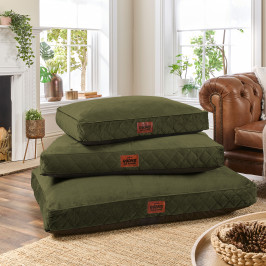
Slumberdown Paws for Slumber Olive Green Pet bed, Medium
£39.00
Shop Now -

Snuggledown Scandinavian Hollowfibre Pillow Protector - Pack of 2
£15.00
Shop Now -

Slumberdown Wonderful Wool Mattress Topper
From: £54.50
Shop Now -

Slumberdown Paws for Slumber Extra Large Pet Bed Spare Cover, Grey
£20.00
Shop Now -

Slumberdown Waterproof Mattress Protector - Double
£17.50
Shop Now -

Snuggledown Intelligent Warmth Heated Topper - King
£125.00
Shop Now -
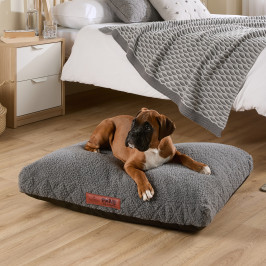
Slumberdown Paws For Slumber Sherpa Pet Bed, Medium
From: £25.00
Shop Now -
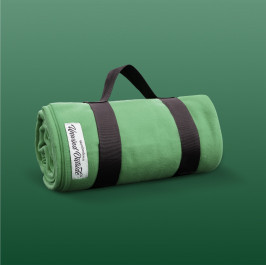
Slumberdown Unwind Outside Endless Lazing Waterproof Blanket, Light Green
£49.00
Shop Now -

Slumberdown Super Support Firm Support Side Sleeper Pillow
From: £17.00
Shop Now -

Slumberdown All Seasons Combi Duvet
From: £25.50
Shop Now -

Slumberdown Paws for Slumber Medium Pet Bed
From: £39.00
Shop Now -

Snuggledown Scandinavian Hollowfibre Pillow Protector
From: £15.00
Shop Now -

Slumberdown Wonderful Wool Mattress Topper, Double
£54.50
Shop Now -

Slumberdown Paws for Slumber Extra Large Pet Bed Spare Cover
From: £20.00
Shop Now -

Slumberdown Waterproof Mattress Protector
From: £16.00
Shop Now -

Snuggledown Intelligent Warmth Heated Topper
From: £110.00
Shop Now -

Slumberdown Unwind Outside Endless Lazing Waterproof Blanket
From: £49.00
Shop Now -
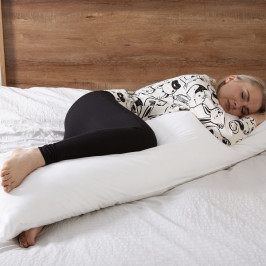
Slumberdown Body Support Pillow, 1 Pack, Includes 100% Cotton Pillow Case
£20.00
Shop Now -

Slumberdown All Seasons Combi 15 Tog (10.5 + 4.5 Tog) King Size Duvet
£34.00
Shop Now


